
Gjógv: The Picturesque Village of the Faroe Islands
Nestled in the Faroe Islands, the charming village of Gjógv offers a serene escape into nature's splendor. Known for its stunning natural harbor, the village is surrounded by dramatic cliffs and lush green landscapes. Gjógv's name, which means 'gorge' in Faroese, is derived from the impressive sea-filled gorge that carves through the village, providing a unique and breathtaking view. Strolling through Gjógv, visitors will find colorful houses, a quaint church, and a peaceful atmosphere that makes it easy to unwind. The village is an excellent starting point for hiking, with several trails leading to panoramic viewpoints and scenic spots. One of the most popular hikes takes you to the top of the nearby mountains, offering a spectacular vista of the village and the surrounding ocean. Gjógv's rich cultural heritage is evident in its traditional Faroese architecture and local customs. The village's natural beauty and tranquil setting have made it a popular destination for photographers and nature enthusiasts alike. Whether you're exploring the rugged coastline, enjoying a picnic by the gorge, or simply soaking in the serene ambiance, Gjógv promises an unforgettable experience.
Local tips in Gjógv
- Wear sturdy hiking boots to explore the rugged terrain and hiking trails around Gjógv.
- Visit the village in summer for longer daylight hours and the best weather conditions.
- Bring a camera to capture the stunning landscapes and picturesque village scenes.
- Check local weather forecasts before planning outdoor activities, as conditions can change rapidly.
- Take time to visit the village church and learn about Gjógv's cultural heritage.
Gjógv: The Picturesque Village of the Faroe Islands
Nestled in the Faroe Islands, the charming village of Gjógv offers a serene escape into nature's splendor. Known for its stunning natural harbor, the village is surrounded by dramatic cliffs and lush green landscapes. Gjógv's name, which means 'gorge' in Faroese, is derived from the impressive sea-filled gorge that carves through the village, providing a unique and breathtaking view. Strolling through Gjógv, visitors will find colorful houses, a quaint church, and a peaceful atmosphere that makes it easy to unwind. The village is an excellent starting point for hiking, with several trails leading to panoramic viewpoints and scenic spots. One of the most popular hikes takes you to the top of the nearby mountains, offering a spectacular vista of the village and the surrounding ocean. Gjógv's rich cultural heritage is evident in its traditional Faroese architecture and local customs. The village's natural beauty and tranquil setting have made it a popular destination for photographers and nature enthusiasts alike. Whether you're exploring the rugged coastline, enjoying a picnic by the gorge, or simply soaking in the serene ambiance, Gjógv promises an unforgettable experience.
When is the best time to go to Gjógv?
Iconic landmarks you can’t miss
Kirkjubømúrurin
Explore the historic village of Kirkjubøur in the Faroe Islands, where medieval architecture meets stunning natural beauty in a captivating cultural experience.
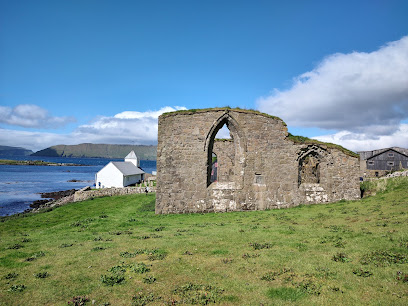
Múlafossur Waterfall
Discover the breathtaking Múlafossur Waterfall in Gasadalur, a natural wonder cascading into the Atlantic Ocean amidst stunning Faroe Islands scenery.
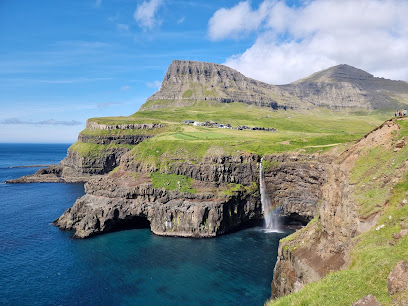
Gjógv Natural Harbour
Discover the serene landscapes and vibrant culture at Gjógv Natural Harbour, a must-see destination in the breathtaking Faroe Islands.
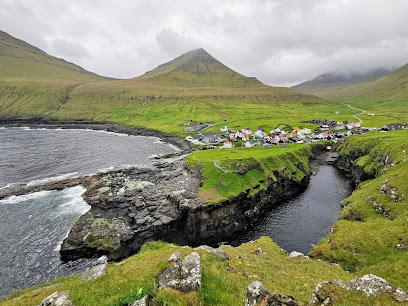
Fossá
Experience the breathtaking beauty of Fossá, the tallest waterfall in the Faroe Islands, where nature's majesty unfolds in serene surroundings.
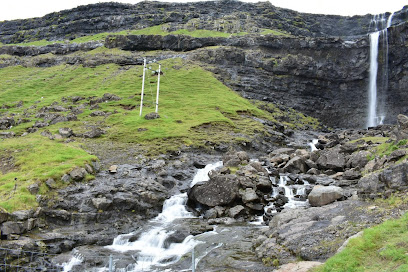
The Nordic House
Discover the vibrant arts and culture of the Nordic region at The Nordic House in Tórshavn, a must-visit cultural center in the Faroe Islands.
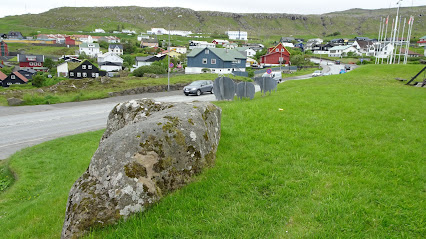
Skansin
Explore the historic fortress of Skansin in Tórshavn, where stunning views and rich maritime history intertwine in the heart of the Faroe Islands.
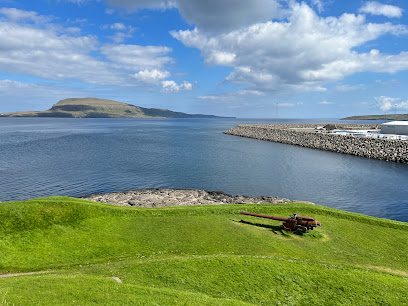
The Seal Woman (Kópakonan)
Explore the legend of Kópakonan, the Seal Woman, through this stunning sculpture in Mikladalur, a cultural gem of the Faroe Islands.
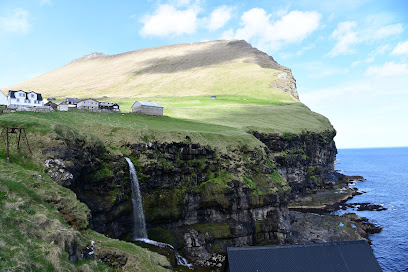
Trælanípa
Explore Trælanípa, the breathtaking cliff in the Faroe Islands offering stunning views and a unique natural experience that every traveler must see.
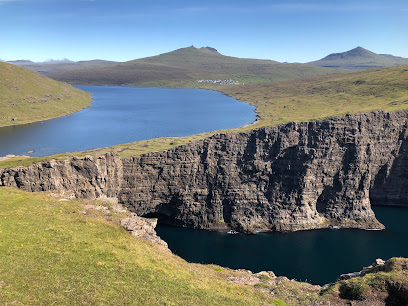
Gjaargardur Guesthouse Gjogv
Experience the authentic flavors of the Faroe Islands at Gjaargardur Guesthouse in Gjogv, where local cuisine meets breathtaking views.
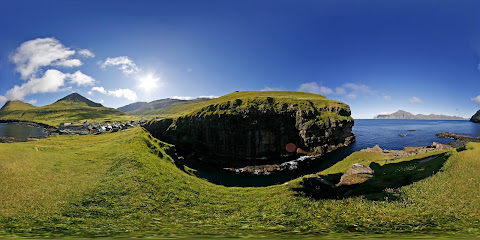
The National Gallery of The Faroe Islands
Discover the artistic soul of the Faroe Islands at The National Gallery, where creativity meets culture in Tórshavn's vibrant art scene.
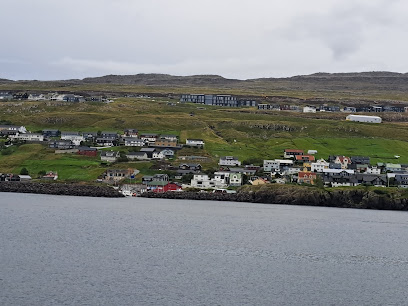
Tjóðsavnið (Faroe Islands National Museum)
Discover the rich culture and history of the Faroe Islands at Tjóðsavnið, the national museum showcasing archaeological treasures and artistic heritage.
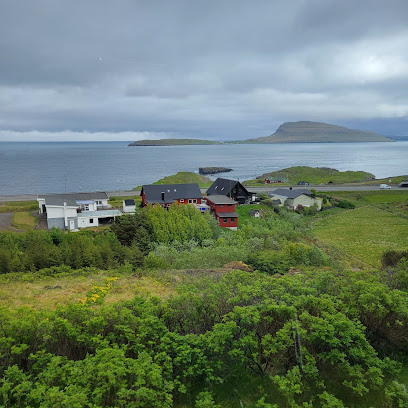
Kallur Lighthouse
Discover the breathtaking views and hiking adventures at Kallur Lighthouse, a must-visit attraction in the stunning Faroe Islands.
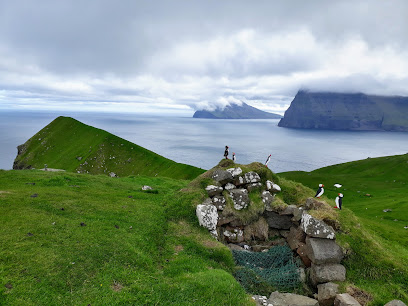
Hilton Garden Inn Faroe Islands
Discover the beauty of Tórshavn from Hilton Garden Inn, offering comfort, local cuisine, and access to stunning landscapes of the Faroe Islands.
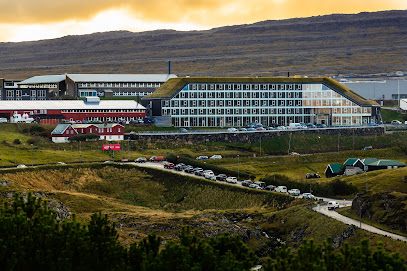
Tjørnuvik Beach
Discover the natural beauty and rich culture of Tjørnuvik Beach in the serene Faroe Islands, a perfect destination for relaxation and exploration.
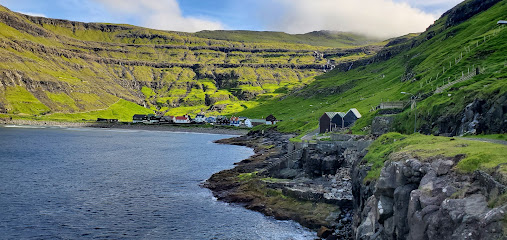
Dúvugarðar Heritage Farm
Experience the rich heritage of the Faroe Islands at Dúvugarðars Heritage Farm, where history, culture, and natural beauty converge.
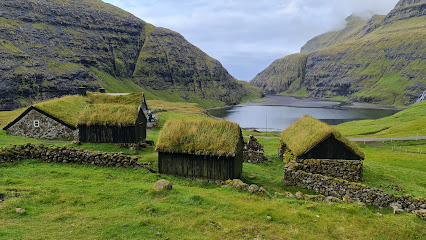
Unmissable attractions to see
Vestmanna Tourist Centre
Explore the dramatic cliffs and rich culture of the Faroe Islands from the Vestmanna Tourist Centre. Boat tours, dining, and history await!
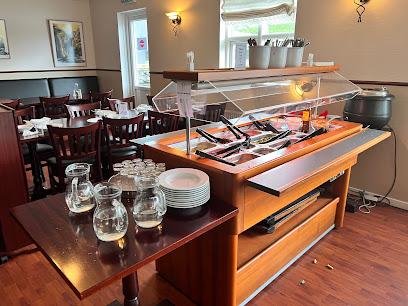
The National Gallery of The Faroe Islands
Discover Faroese art and culture at the National Gallery in Tórshavn, showcasing a diverse collection from the 1830s to today.
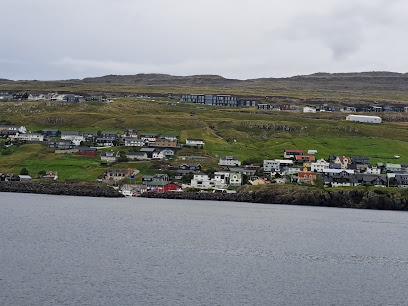
Slave Cliff (Lake Above the Ocean)
Explore Slave Cliff in the Faroe Islands for breathtaking views and unforgettable hiking experiences in a stunning natural setting.
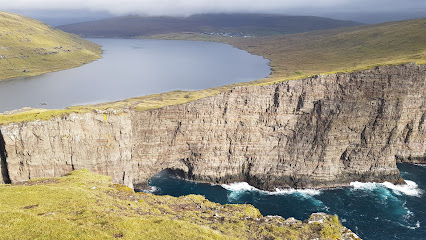
Villingardalsfjall - Enniberg - Hike Startingpoint
Hike to the top of Villingadalsfjall for breathtaking panoramic views of Viðareiði and the surrounding Faroe Islands.
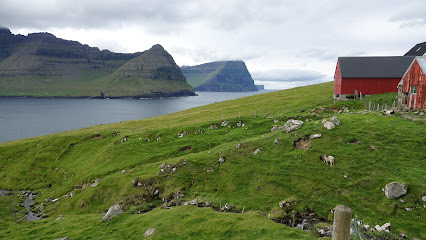
Gongutúrur / Hvithamar Trailhead
Hike to Hvíthamar for breathtaking views of Funningsfjørður fjord and the surrounding Faroese landscape. An accessible trail with rewarding panoramas.
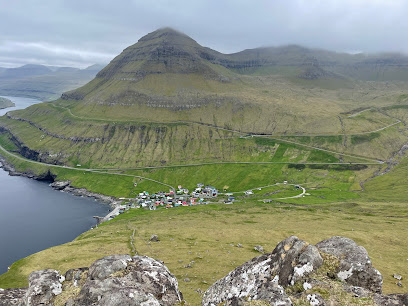
Saksun, vandfald og historie
Discover Saksun, a remote Faroese village with a stunning tidal lagoon, turf-roofed houses, and a historic church nestled amidst dramatic mountains.
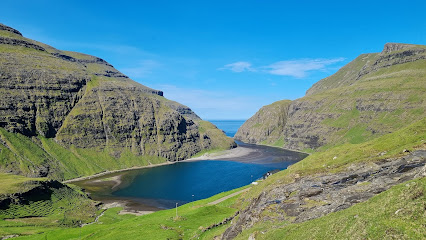
Visit Eysturoy - Fuglafjørður / Kunningarstovan í Fuglafirði
Discover Eysturoy's charm at Fuglafjørður's visitor center: art, culture, and stunning landscapes await in the Faroe Islands.
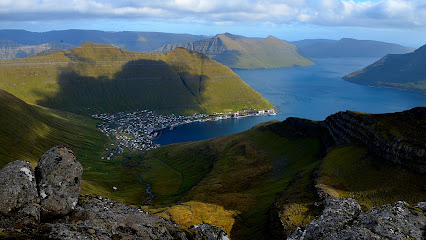
Gorge Elduvík
Discover Elduvík Gorge: a serene Faroese treasure offering dramatic landscapes, hiking, and a glimpse into traditional island life.
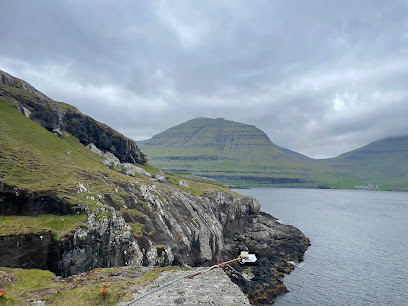
Vaglið
Experience the vibrant heart of Tórshavn at Vaglið, a central square steeped in history and Faroese culture.
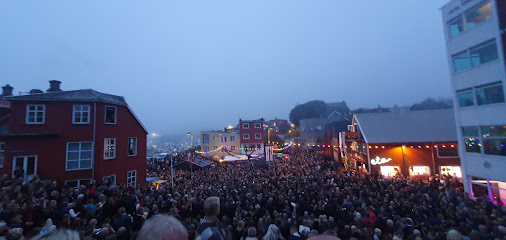
Klemensgjogv
Explore Klemensgjogv, the world's largest sea cave on Hestur Island, Faroe Islands, for dramatic cliffs, stunning views, and unique boat tours.
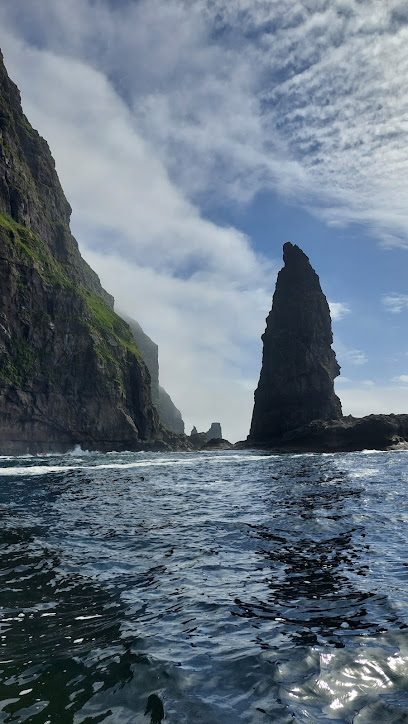
Vestmanna
Explore Vestmanna, Faroe Islands: Viking history, dramatic cliffs, and unforgettable boat tours await!
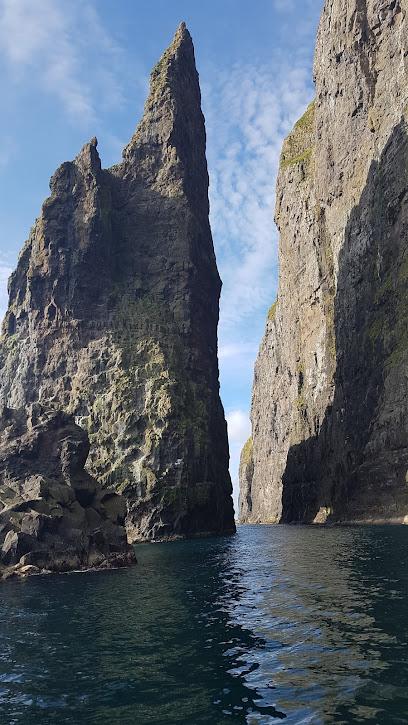
Essential places to dine
Angus Steakhouse
Savor exquisite steaks and local flavors at Angus Steakhouse in Tórshavn - an unforgettable dining experience awaits.
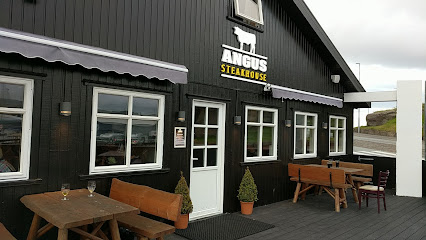
Gjaargardur Guesthouse Gjogv
Discover local flavors at Gjaargardur Guesthouse Gjógv – where exquisite cuisine meets breathtaking Faroese landscapes.

Áarstova
Experience authentic Faroese cuisine at Áarstova in Tórshavn—where tradition meets taste for an unforgettable dining adventure.
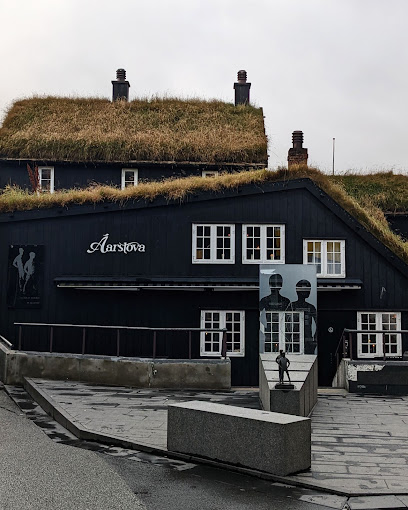
Barbara Fish House
Experience exquisite seafood dining at Barbara Fish House in Tórshavn - where local flavors meet culinary artistry.
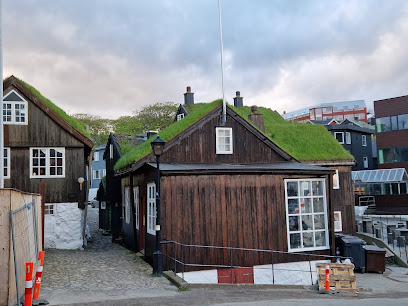
Rose's Restaurant & Catering
Experience authentic Faroese cuisine amidst stunning landscapes at Rose's Restaurant & Catering in Ljósá.
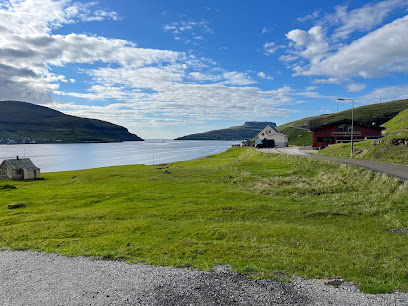
Angus Steakhouse Klaksvík
Experience the best of Faroese cuisine at Angus Steakhouse Klaksvík – where quality meets tradition in every bite.
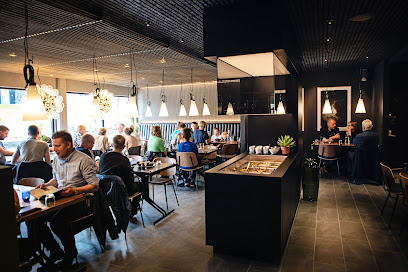
Café Zorva
Discover Café Zorva: A charming brasserie offering delicious local cuisine amidst breathtaking views in Sørvágur.
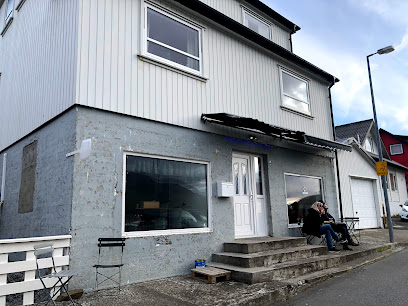
Fisk og Kips
Experience authentic Faroese cuisine at Fisk og Kips – where fresh fish meets crispy chips in Tórshavn's cozy setting.
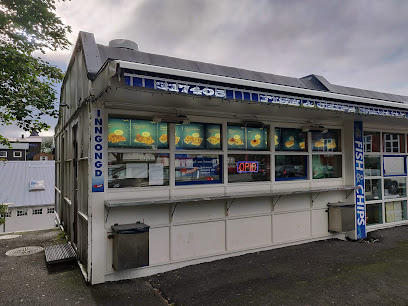
Kafe Umami
Discover Kafe Umami: Tórshavn's vibrant restaurant offering fresh Faroese flavors in a cozy setting.
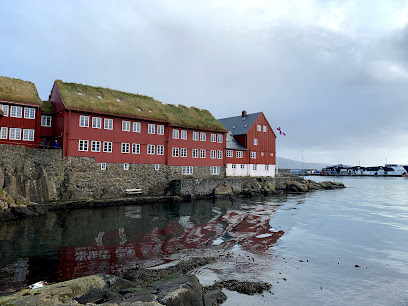
Muntra
Experience authentic Faroese cuisine at Muntra, where local flavors meet stunning landscapes in Fuglafjørður.
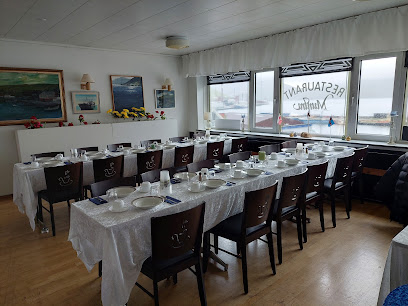
Seven
Discover authentic Chinese cuisine at Seven in Tórshavn - where tradition meets taste in every delightful dish.
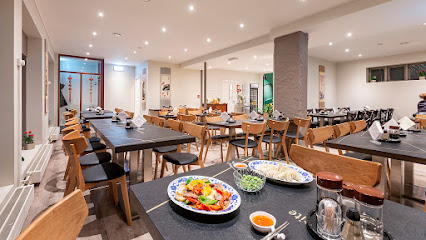
hvonn
Experience authentic Faroese cuisine at Hvonn in Tórshavn—where local flavors meet cozy ambiance.
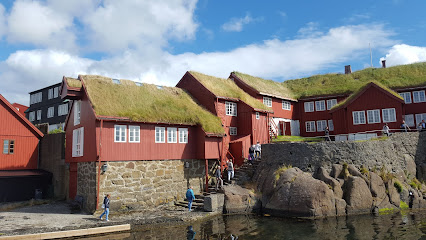
Smiðjan
Discover authentic Faroese flavors at Smiðjan, where local ingredients meet breathtaking views in Miðvágur.
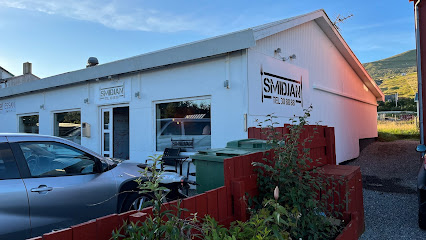
Resturant Cafe Pollastova
Discover authentic Faroese cuisine at Restaurant Cafe Pollastova in Sørvágur – where local flavors meet breathtaking island views.
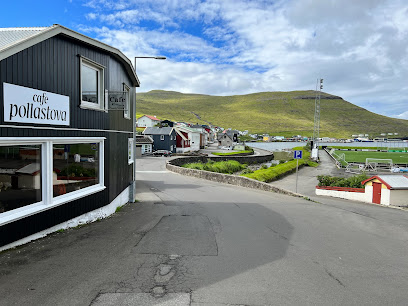
ROKS
Discover ROKS in Tórshavn: A culinary adventure featuring fresh Faroese ingredients and traditional flavors.
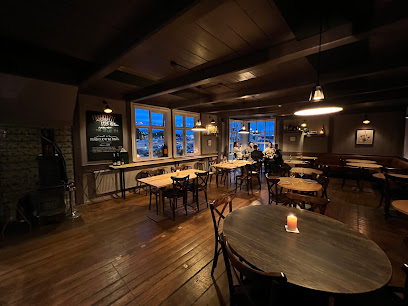
Markets, malls and hidden boutiques
Kioskin
Explore Kioskin in Trøllanes for a unique selection of local products and a taste of Faroese culture amid stunning island scenery.
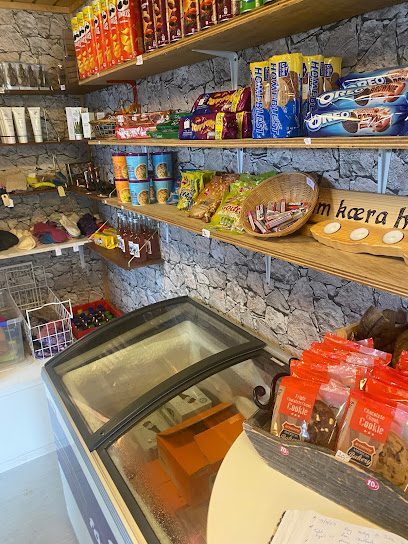
Á
Discover the flavors of the Faroe Islands at Á Grocery Store, your one-stop shop for local and international delights in Tórshavn.
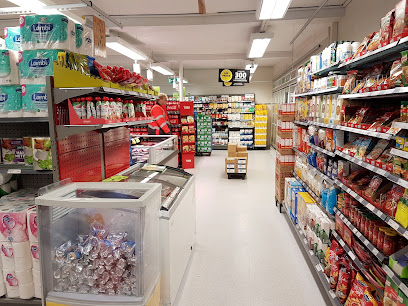
Á Handil
Discover the best of Faroese flavors at Á Handil, Tórshavn's go-to grocery store offering local and international delights.
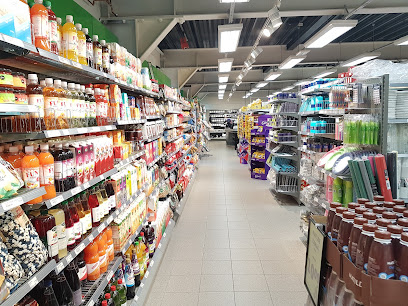
FK fuglafjørður
Immerse yourself in Faroese culture at FK Fuglafjørður, the charming grocery store offering local produce and artisanal goods in the heart of the Faroe Islands.
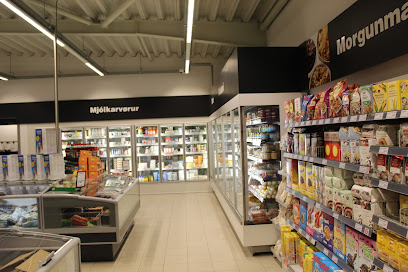
Á við Norðskála
Discover local flavors and essential products at Á við Norðskála, your friendly grocery store in Oyrarbakki, Faroe Islands.
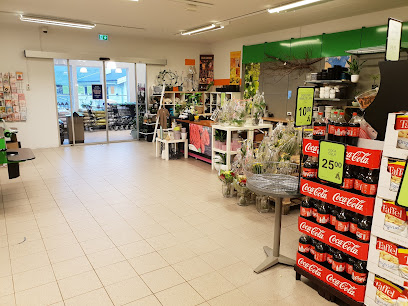
Guðrun & Guðrun
Explore stylish, sustainable clothing inspired by the breathtaking Faroe Islands at Guðrun & Guðrun in Tórshavn.
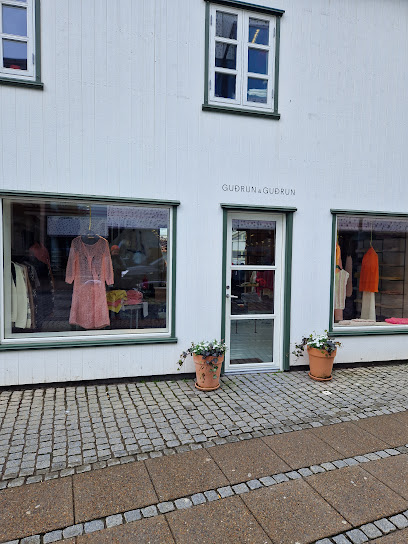
SJÓGÆTI
Experience the freshest seafood in the heart of Norðskáli at SJÓGÆTI, where quality meets sustainability in every catch.
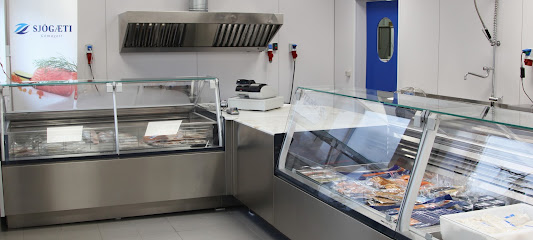
Inn við Grønlandsvegin
Explore local flavors and everyday essentials at Inn við Grønlandsvegin, the heart of grocery shopping in Tórshavn.
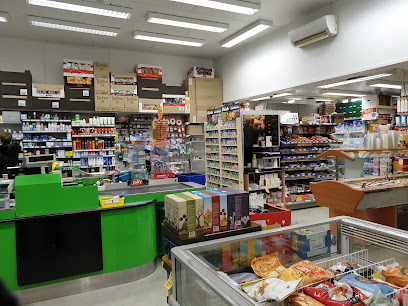
Á Sandoyggin
Explore the flavors of the Faroe Islands at Á Sandoyggin, your go-to grocery store in Skopun for fresh produce and local delicacies.
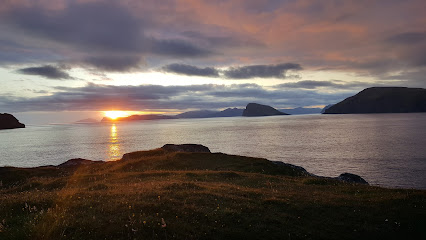
Ullvøruhúsið
Explore the heart of Faroese fashion at Ullvøruhúsið, offering exquisite wool garments that embody the spirit of the Faroe Islands.
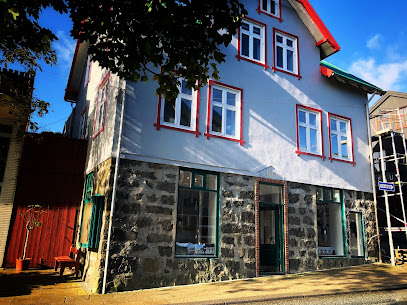
Føroya Heimavirkisfelag
Discover unique Faroese fashion at Føroya Heimavirkisfelag, a boutique in Tórshavn showcasing the island's textile heritage.
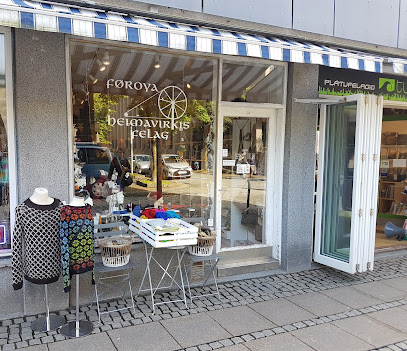
Fjord by Suffía Nón
Explore Fjord by Suffía Nón in Fuglafjørður for unique gifts and interior design inspired by the breathtaking beauty of the Faroe Islands.
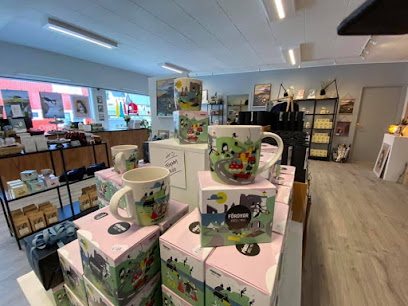
Kiosk Activ
Explore the heart of Tórshavn with Kiosk Activ, your one-stop convenience store for snacks, drinks, and local treasures.
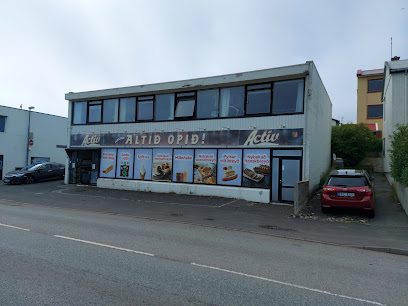
Rit & Rák
Explore Faroese literature and culture at Rit & Rák, Tórshavn's beloved bookstore with a cozy atmosphere and diverse collection.
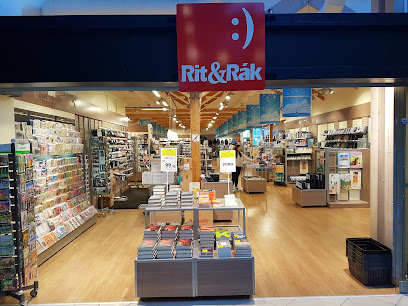
Tógvhúsið
Explore Tógvhúsið, Tórshavn's premier yarn store, offering a colorful selection of high-quality yarns and knitting accessories for all enthusiasts.
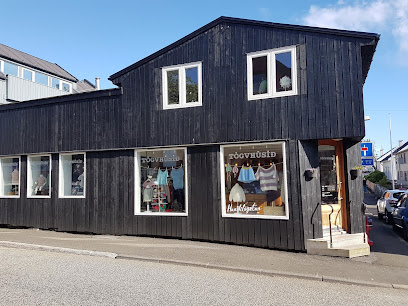
Essential bars & hidden hideouts
Gjógv Natural Harbour
Explore the stunning landscapes and rich culture of Gjógv Natural Harbour, a hidden gem in the Faroe Islands, perfect for nature lovers and adventure seekers.
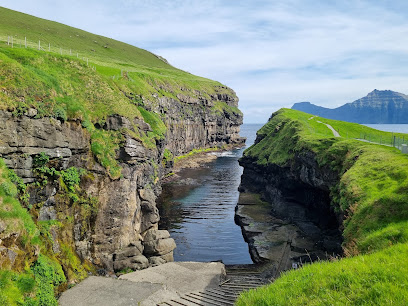
Irish Pub Torshavn
Immerse yourself in the vibrant atmosphere of Tórshavn at the Irish Pub, where authentic Irish cuisine meets Faroese charm.
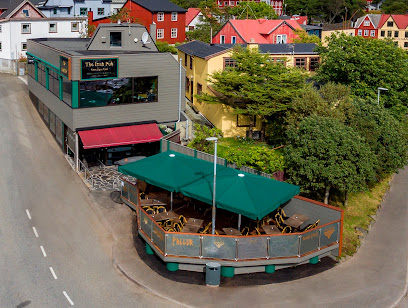
Gjaargardur Guesthouse Gjogv
Experience the essence of the Faroe Islands at Gjaargardur Guesthouse, where local flavors and stunning views unite for an unforgettable dining experience.
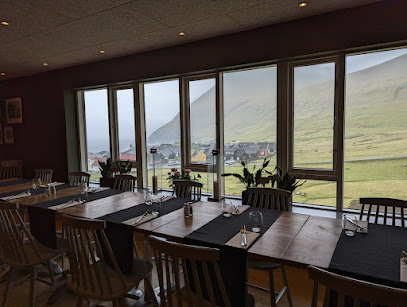
Sirkus Bar
Discover the lively Sirkus Bar in Tórshavn, a perfect blend of local culture and vibrant nightlife for an unforgettable experience.
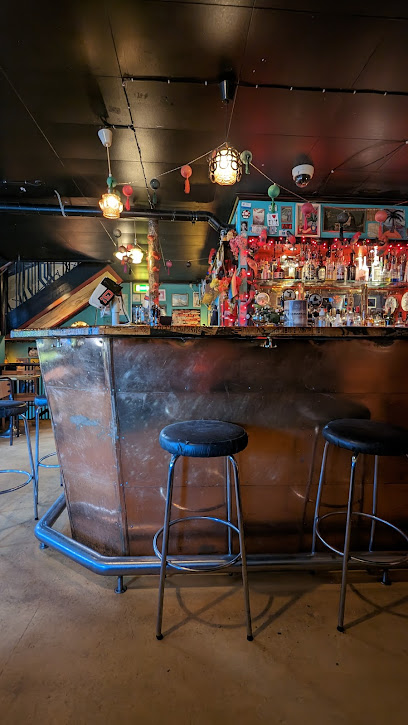
Rose's Restaurant & Catering
Experience the exquisite flavors of the Faroe Islands at Rose's Restaurant & Catering, where local ingredients meet culinary excellence.
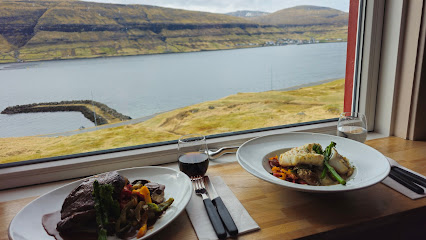
Mikkeller Tórshavn
Discover the vibrant atmosphere and unique craft beers at Mikkeller Tórshavn, a must-visit bar in the heart of the Faroe Islands.
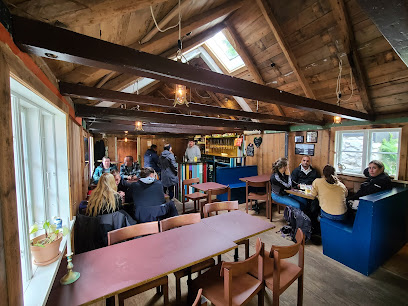
OY Brewing
Discover the finest craft beers and delicious bar food at OY Brewing, a charming brewpub in the heart of Tórshavn, Faroe Islands.
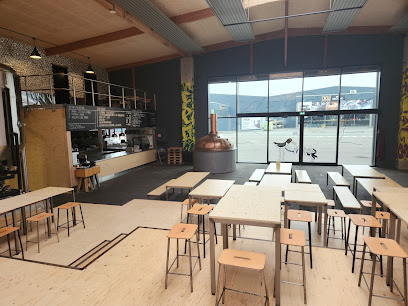
Roykstovan
Discover the vibrant atmosphere of Roykstovan, a must-visit bar in Klaksvík, offering local drinks, light bites, and a taste of Faroese culture.
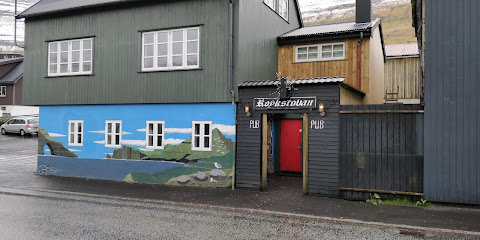
Brimborg
Experience the flavors of the Faroe Islands at Brimborg, a restaurant in Gøtugjógv known for its fresh, local ingredients and stunning views.
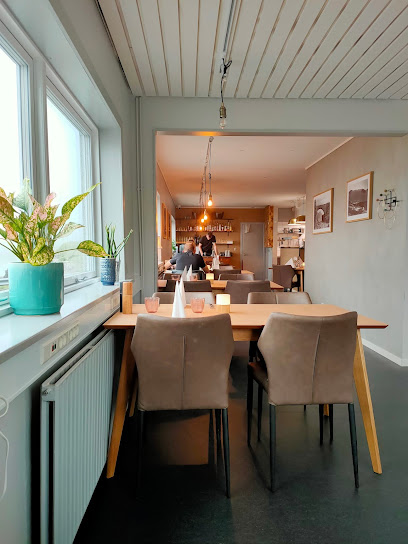
Gjáarkaffi
Experience the warmth and charm of Gjáarkaffi, a cozy café offering local flavors and stunning views in the heart of Gjógv, Faroe Islands.
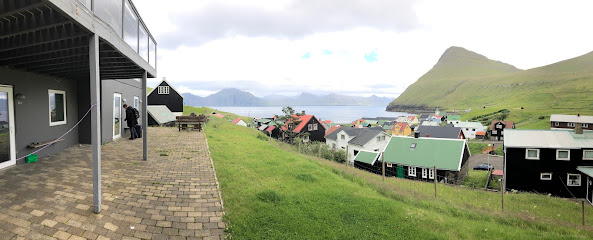
Glitnir
Discover the cozy charm of Glitnir, the perfect bar in Tórshavn for tourists seeking local culture and delicious drinks in the heart of the Faroe Islands.
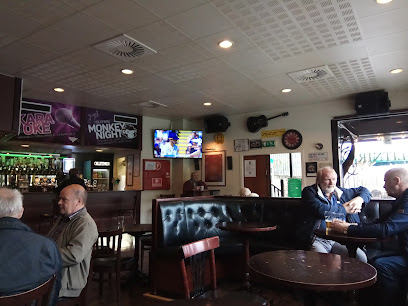
Blábar
Experience the vibrant nightlife of Tórshavn at Blábar, where jazz and blues create an unforgettable atmosphere to unwind and socialize.
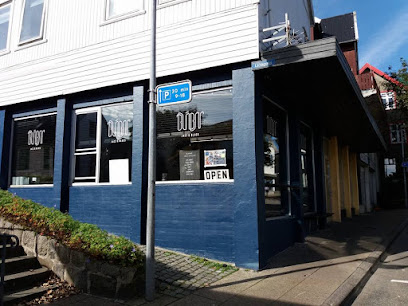
Tórshøll
Experience Tórshøll, Tórshavn's cozy bar offering a delightful mix of local brews and a welcoming atmosphere in the heart of the Faroe Islands.
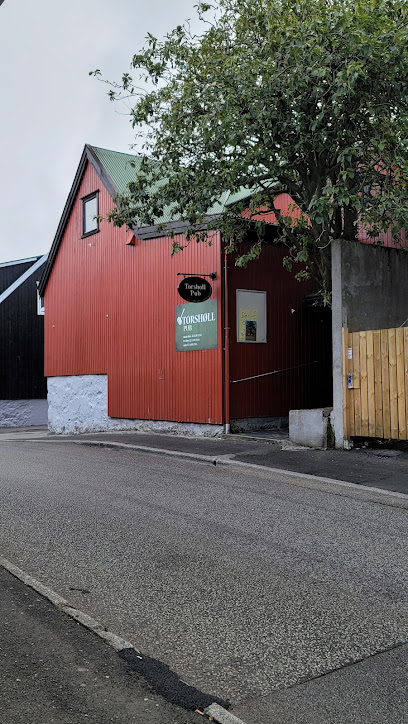
Maverick
Discover Maverick in Klaksvík - a cozy bar offering local beers and a friendly atmosphere for a memorable night out.
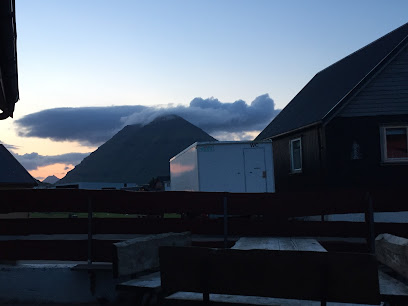
Local Phrases about Gjógv
-
- HelloHalló
[ha-lou] - GoodbyeFarvæl
[far-vai-el] - YesJa
[ya] - NoNei
[nay] - Please/You're welcomeVælkomin
[vai-el-ko-min] - Thank youTakk fyri
[tak fi-ri] - Excuse me/SorryFyrirgef meg
[fi-ri-gev mey] - How are you?Hvussu gongur tú?
[khu-su gon-gur too] - Fine. And you?Gott. Og tú?
[got. og too] - Do you speak English?Talar tú enskt?
[ta-lar too enskt] - I don't understandEg skilji ikki
[ey shil-yi i-kki]
- HelloHalló
-
- I'd like to see the menu, pleaseEg vil sæð matseðilin, takk
[ey vil se-ad mat-se-yi-lin, tak] - I don't eat meatEg eta ikki kjøt
[ey eta i-kki khyut] - Cheers!Skál!
[skowl] - I would like to pay, pleaseEg vil gjalda, takk
[ey vil gyal-da, tak]
- I'd like to see the menu, pleaseEg vil sæð matseðilin, takk
-
- Help!Hjálp!
[hya-lp] - Go away!Far burtur!
[far bur-tur] - Call the Police!Ringi løgregluna!
[ring-i lurr-eg-lu-na] - Call a doctor!Ringi ein læknari!
[ring-i ain laik-na-ri] - I'm lostEg er týður
[ey er ti-thur] - I'm illEg er sjúkur
[ey er shoo-kur]
- Help!Hjálp!
-
- I'd like to buy...Eg vil keypa...
[ey vil kee-pa] - I'm just lookingEg er bert at síggja
[ey er bairt at see-ya] - How much is it?Hvat kostar tað?
[khwat kus-tar tadh] - That's too expensiveTað er ov dýrt
[tadh er ov di-rt] - Can you lower the price?Kanstu lækka prísin?
[kan-stu lai-kka pri-sin]
- I'd like to buy...Eg vil keypa...
-
- What time is it?Hvat er klukkan?
[khwat er kloo-kan] - It's one o'clockTað er eitt
[tadh er ait] - Half past (10)Hálvgoymsla (10)
[khal-vgoym-sla (10)] - MorningMorgun
[mor-gun] - AfternoonEftirmyrka
[eftir-mur-ka] - EveningKvøld
[kvul-d] - YesterdayÍ gjár
[i gy-ai-r] - TodayÍ dag
[i dag] - TomorrowÍ morgin
[i mor-gin] - 1Ein
[ain] - 2Tvey
[tvey] - 3Trý
[try] - 4Fýra
[fi-ra] - 5Fimm
[fim] - 6Seks
[seks] - 7Sjey
[shai] - 8Átta
[au-ta] - 9Ni
[nee] - 10Tíggju
[tee-ju]
- What time is it?Hvat er klukkan?
-
- Where's a/the...?Har er ein/hetta...?
[har er ain/het-ta] - What's the address?Hvat er adressan?
[khwat er ad-dres-san] - Can you show me (on the map)?Kanstu vísa meg (á korti)?
[kan-stu vee-sa mey (ow kor-ti)] - When's the next (bus)?Nær kemur næsti (buss)?
[nair ke-mur nais-ti (bus)] - A ticket (to ....)Eitt ferðaseðil (til ....)
[eyt fer-tha-se-yil (til)]
- Where's a/the...?Har er ein/hetta...?
History of Gjógv
-
Gjógv, a picturesque village located on the northeastern tip of Eysturoy in the Faroe Islands, was settled in the Viking Age around the 9th century. The name 'Gjógv' means 'gorge' in Faroese, referencing the natural sea-filled gorge that lies at the heart of the village. Early settlers were drawn to the area due to its fertile land and abundant fishing opportunities.
-
Gjógv's history is deeply intertwined with the sea. The village’s natural harbor, formed by the gorge, has been a lifeline for its inhabitants for centuries. Fishing has been the primary occupation, and traditional Faroese boats, known as 'seksæringur,' were used for both fishing and transport. This maritime heritage is still evident today, with the village's boat houses and fishing equipment on display.
-
The Gjógv Church, built in 1929, stands as a testament to the village's strong sense of community and faith. It replaced an older church that had served the villagers since 1833. The church is a focal point for local events and gatherings, reflecting the close-knit nature of Gjógv’s residents. The cemetery adjoining the church offers a serene resting place for many generations of villagers.
-
During World War II, the Faroe Islands were occupied by British forces to prevent a German invasion. Gjógv, like many Faroese villages, saw an influx of British soldiers. The occupation brought about infrastructural developments, including improved roads and communication systems, which facilitated better connectivity for Gjógv with the rest of the archipelago.
-
In recent decades, Gjógv has transformed into a popular tourist destination, celebrated for its stunning natural scenery and traditional Faroese lifestyle. The conversion of old buildings into guesthouses and the establishment of hiking trails has allowed visitors to immerse themselves in the village’s rich cultural and historical heritage. The gorge is a major attraction, offering spectacular views and a unique natural setting.
-
Gjógv hosts several cultural events throughout the year, celebrating Faroese traditions and community spirit. One notable event is the annual summer festival, where locals and visitors gather to enjoy Faroese music, dance, and cuisine. These festivals play a crucial role in preserving and promoting the local culture and provide an opportunity for visitors to engage with the vibrant traditions of Gjógv.
Gjógv Essentials
-
Gjógv is located on the northeastern tip of Eysturoy, one of the Faroe Islands. The nearest airport is Vágar Airport (FAE), approximately 70 kilometers away. From the airport, you can take a car or taxi to Gjógv, which typically takes around 1.5 hours. If you prefer public transportation, you can take a bus from the airport to Tórshavn, the capital, and then transfer to another bus heading to Gjógv. The bus ride offers scenic views of the islands and takes around 2.5 hours in total.
-
Gjógv is a small village, and its main attractions are within walking distance. To explore the surrounding areas, renting a car is the most convenient option. While public buses are available, they run infrequently. Taxis can be a good alternative for short trips, but they are not as readily available. Ensure you check the bus schedules in advance if you plan to use public transportation.
-
The official currency in the Faroe Islands is the Faroese króna (DKK), which is pegged to the Danish krone. Credit and debit cards are widely accepted in hotels, restaurants, and larger shops. However, it's advisable to carry some cash, especially for smaller establishments and in more remote areas. ATMs are available in the larger towns, but not in Gjógv itself, so plan accordingly.
-
Gjógv is generally a very safe destination with low crime rates. Nevertheless, always take standard precautions such as locking your car and securing your belongings. There are no specific high-crime areas targeting tourists. As with any travel destination, stay vigilant and be aware of your surroundings, especially when hiking or exploring remote areas.
-
In case of emergency, dial 112 for immediate assistance, which connects you to police, fire, and medical services. The nearest medical facility is in Klaksvík, about 40 kilometers away. For minor health issues, it's advisable to carry a basic first-aid kit, as pharmacies are limited in the area. Ensure your travel insurance covers medical emergencies.
-
Fashion: Do dress in layers and bring waterproof clothing, as the weather can be unpredictable. Avoid overly casual attire in formal settings. Religion: Do respect local customs, especially when visiting churches or religious sites. Public Transport: Do be punctual for buses, as they run on a strict schedule. Don't expect frequent service, especially in remote areas. Greetings: Do greet people with a smile and a nod. A handshake is also common in more formal settings. Eating & Drinking: Do try local Faroese dishes and accept food offerings graciously. Don't waste food, as it is considered impolite.
-
To experience Gjógv like a local, take a walk around the village and engage with the friendly residents. Attend local events and festivals if they coincide with your visit. Don't miss the natural harbor, a unique feature of Gjógv. For a truly Faroese experience, try a meal at the local guesthouse, Gjáargarður, which offers traditional Faroese cuisine.
Trending Landmarks in Gjógv
-
Kirkjubømúrurin
-
Múlafossur Waterfall
-
Gjógv Natural Harbour
-
Fossá
-
The Nordic House
-
Skansin
-
The Seal Woman (Kópakonan)
-
Trælanípa
-
Gjaargardur Guesthouse Gjogv
-
The National Gallery of The Faroe Islands
-
Tjóðsavnið (Faroe Islands National Museum)
-
Kallur Lighthouse
-
Hilton Garden Inn Faroe Islands
-
Tjørnuvik Beach
-
Dúvugarðar Heritage Farm
Nearby Cities to Gjógv
-
Things To Do in Gøta
-
Things To Do in Vestmanna
-
Things To Do in Klaksvik
-
Things To Do in Kvívík
-
Things To Do in Strendur
-
Things To Do in Runavík
-
Things To Do in Sandavágur
-
Things To Do in Miðvágur
-
Things To Do in Sorvagur
-
Things To Do in Tórshavn
-
Things To Do in Argir
-
Things To Do in Nólsoy
-
Things To Do in Tvøroyri
-
Things To Do in Vágur
-
Things To Do in Seydisfjordur









